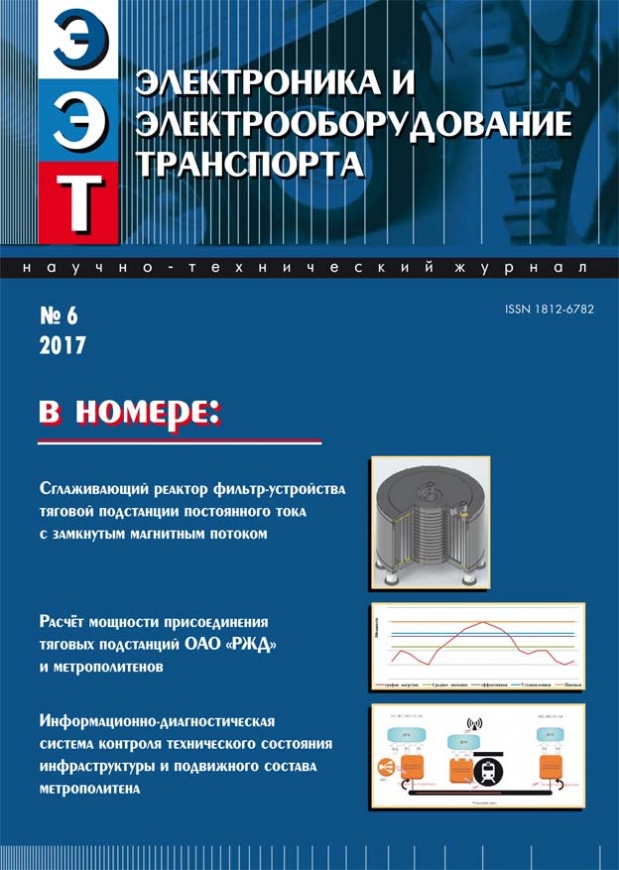
What's in the issue?
Power supply and electrical equipment
Analysis of method error of analog-to-digital conversion of the motion speed of rolling stock by formation of logical link
Baranov L., Evseev D.The analysis of statistical and dynamic method error of analog-to-digital conversion of the motion speed of the rolling stock with pulse-frequency sensors of rotational speed of mounted wheels was given. There was considered the method of statistical error reduction of conversion. The possibility of dynamic error of reduction analog-to-digital conversion of the speed by virtue of integration of logical link of conversion was proved. There were received the analytical expressions for calculation of method error of analog-to-digital conversion by determinate and stochastic models of incoming signal. The using of logical link in methods of analog-to-digital conversion of the motion speed make possible to strike a happy medium between statistical and dynamic error which run effectively tracts of speed measurement in the management, diagnostic and railroad traffic safety systems.
Keywords: analog-to-digital conversion, motion speed, pulse-frequency modulator, rotational speed, statistical methodic error, model of the signal, autocorrelation function of signal, logical link of conversion, reduction of statistical and dynamic error, calculation of error estimates.Switching frequency management for temperature control of traction semiconductor devices
Kosmodamianskiy A., Strekalov N., Pugachev A.The brief survey of techniques of traction frequency converters power semiconductor devices cooling is presented. The advantages and drawbacks of technical approaches and schematic solutions applied nowadays are highlighted, the suggestions for its improvements without significant interventions into design and topology are proposed. The additional techniques to control semiconductors temperature of frequency converters of traction rolling stock are laid out. The temperature control system with using of semiconductors frequency switching as a regulatory reference and applying of deviation of semiconductor temperature from the reference on average temperature is developed and investigated. The results of simulation in MATLAB are shown and discussed.
Keywords: frequency converter, temperature, cooling system, power losses, switching frequency, simulation.Development of a filter reactor with a closed magnetic flux for DC traction substation
Bader M., Dozhina G., Lobyntsev V., Dmitry D., Dinisilov A.At present, railroads traction substations use reliable, yet obsolete filter reactors of the RBFA-U type. These reactors have an open design and are characterized by a significant level of losses reaching several hundred kilowatts. New design solutions, as well as modern calculation methods, allow to design a filter reactor with a completely closed magnetic flux in an armored rod cylindrical magnetic system. The paper discusses the proposed design solutions used in the development of an energy-efficient smoothing reactor with previously unattainable performance characteristics with a 2-3 times increase in the energy density per volume.
Keywords: filter reactor, electrical substation.